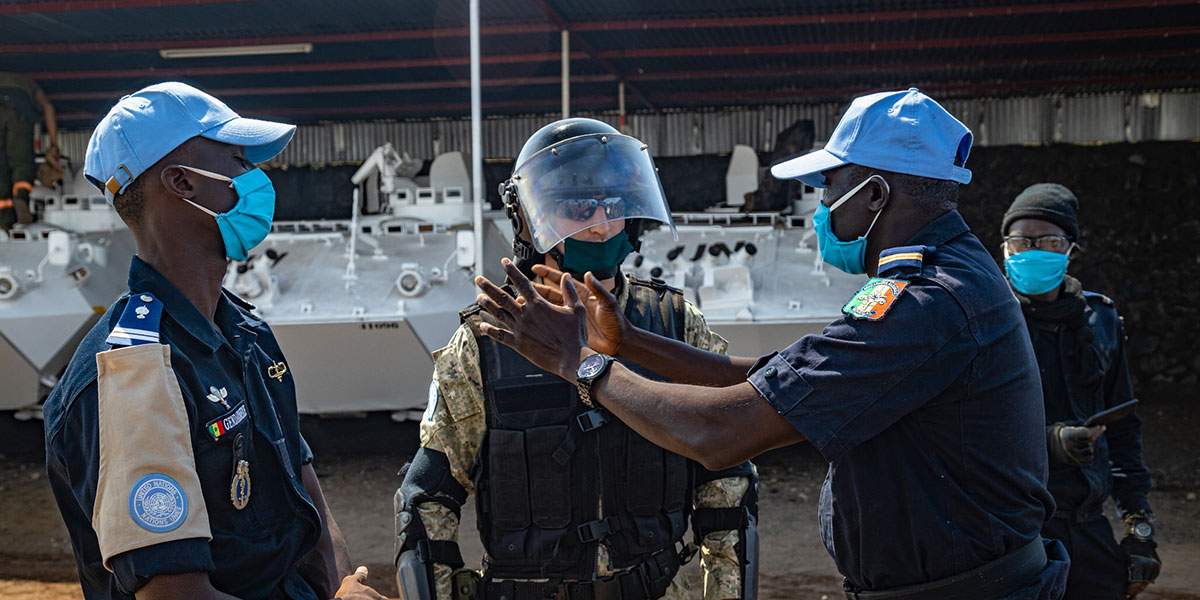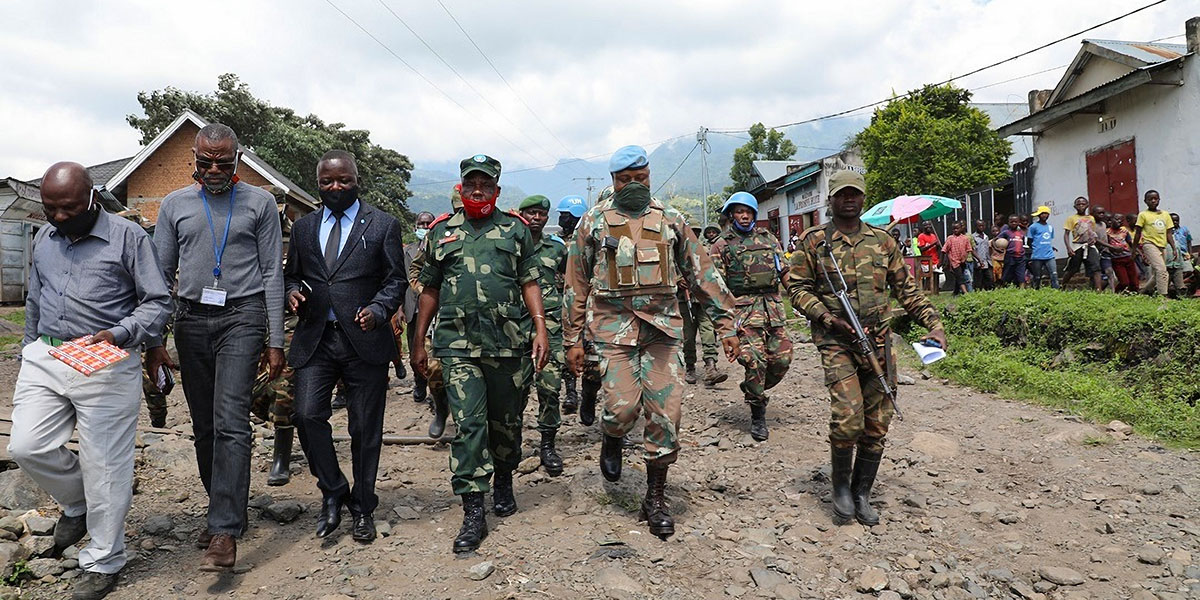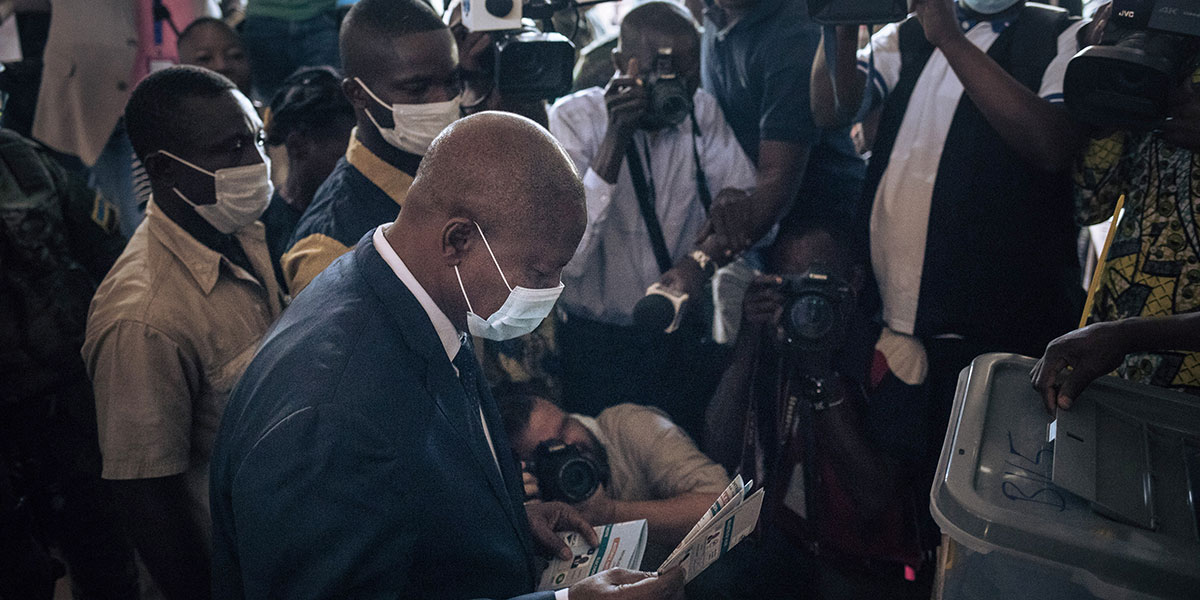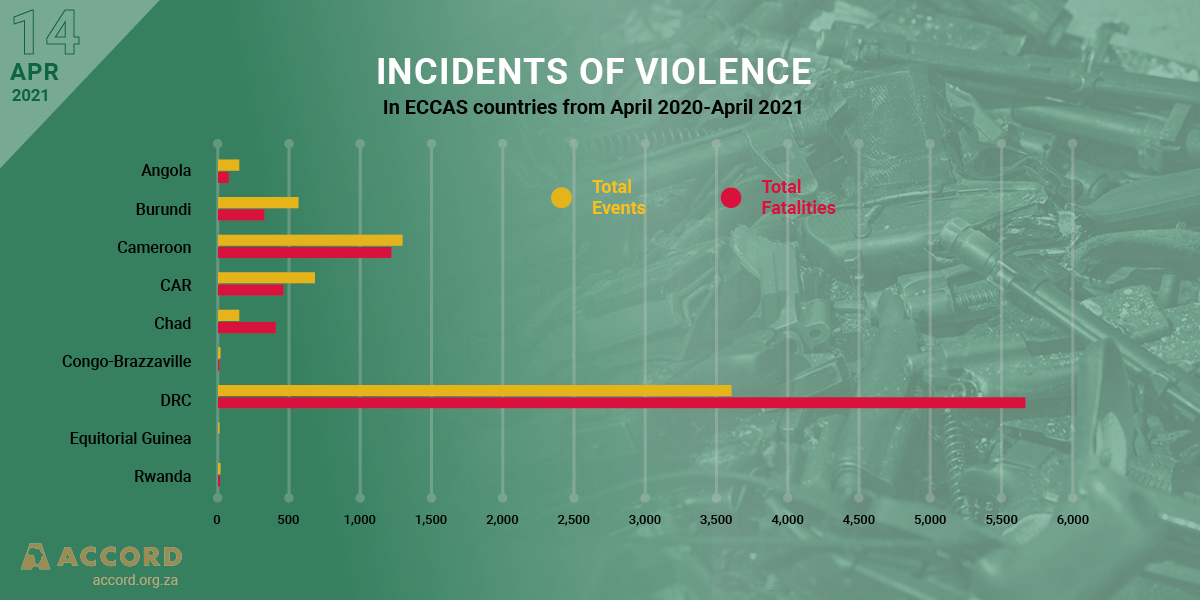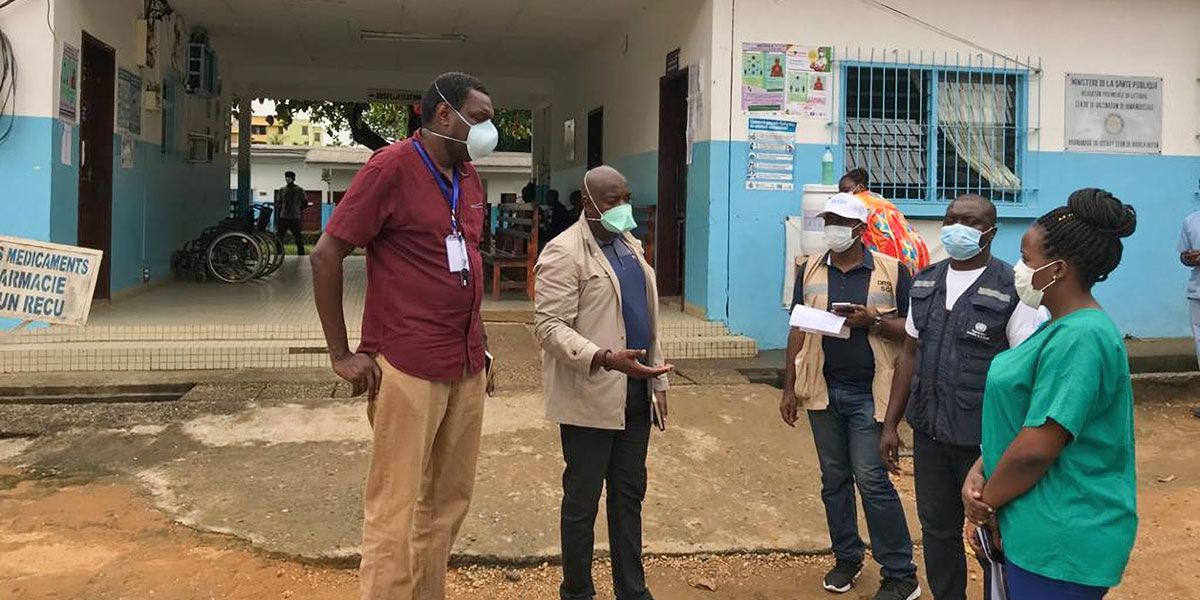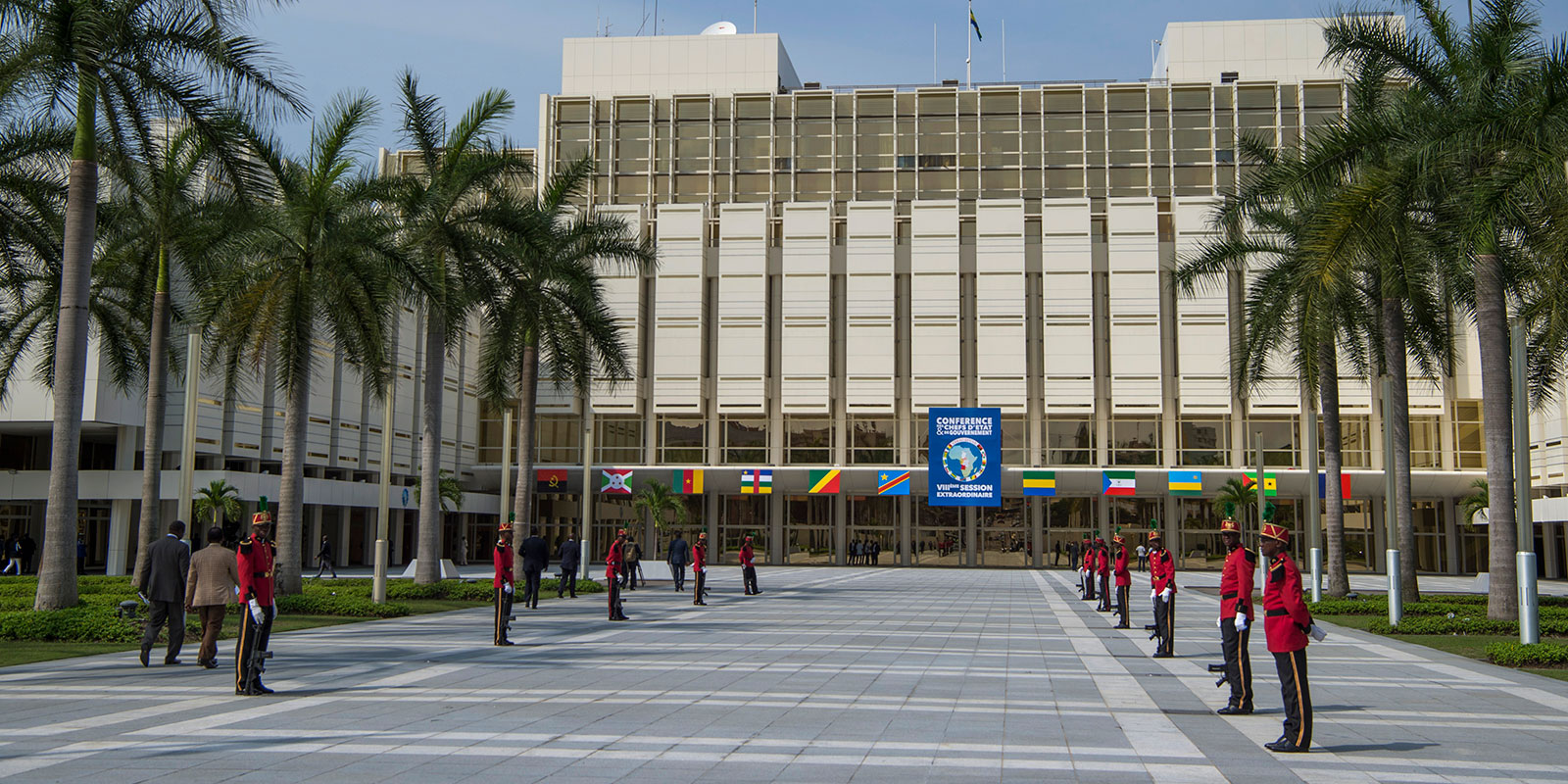This week the Monitor turns its attention to the Central African region, with pieces on Cameroon, the Central African Republic (CAR) and the Democratic Republic of the Congo (DRC).
Our Feature contribution comes from Ms Kapinga Yvette Ngandu, the Commissioner responsible for Gender, Human and Social Development in the Commission of the Economic Community of Central African States (ECCAS). She writes about the actions taken by ECCAS to contain the COVID-19 pandemic, address its consequences, and to prevent future such public health emergencies.
On Cameroon, Dr. Christelle Amina Djoulde and Prof. Gilbert L. Taguem Fah chronicle the multiple dimensions of the crises that Cameroon has to manage, in addition to the COVID-19 pandemic.
Turning to the Central African Republic, Dr. Gino Vlavonou considers how militarism and political elitism is a challenge for sustaining the peace; and ACCORD’s Claude Bizimana reflects on the impact of COVID-19 on the CAR’s December 2020 and March 2021 elections.
On the DRC, Dr. Balingene Kahombo writes about how the government’s response to the COVID-19 pandemic has also triggered a constitutional crisis, human rights challenges and has impacted on the ongoing conflict in the eastern DRC.

